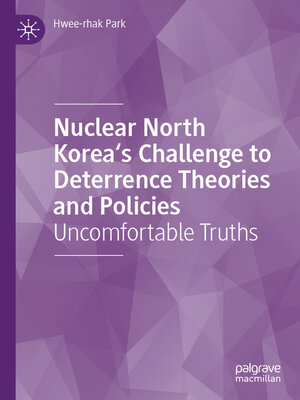Nuclear North Korea's Challenge to Deterrence Theories and Policies
ebook ∣ Uncomfortable Truths · Political Science and International Studies
By Hwee-rhak Park

Sign up to save your library
With an OverDrive account, you can save your favorite libraries for at-a-glance information about availability. Find out more about OverDrive accounts.
Find this title in Libby, the library reading app by OverDrive.



Search for a digital library with this title
Title found at these libraries:
| Library Name | Distance |
|---|---|
| Loading... |
This book analyzes the challenges of North Korea's nuclear threat today and the shortcomings of nuclear defense theory. With North Korea openly threatening to attack the United States and South Korea using nuclear weapons—following its successful development of hydrogen bombs and intercontinental ballistic missiles (ICBMs)—deterrence against the regime has become both urgent and increasingly uncertain. Furthermore, North Korea’s formal de facto alliance with Russia, established in 2024, raises the possibility that its nuclear forces could disrupt the strategic nuclear balance between the United States and the Russia–China bloc. As North Korea directly challenges the credibility of the U.S. nuclear extended deterrence, or nuclear umbrella, for South Korea, the traditional deterrence model—based on the threat of overwhelming retaliation—may no longer be effective. To advance the discourse on nuclear deterrence and address these emerging challenges, this book introduces several new concepts, including Balance of Fear, Institutional (Nuclear) Deterrence, Alliance Correctness, and Line of Nuclear Deterrence. The primary audience for this book includes academics and students specializing in international relations, particularly those focusing on nuclear deterrence. Additionally, policymakers, government officials in diplomatic and security organizations, and military personnel in the United States, NATO member states, and other regions will find this book valuable for understanding and responding to North Korea’s evolving nuclear threat.







